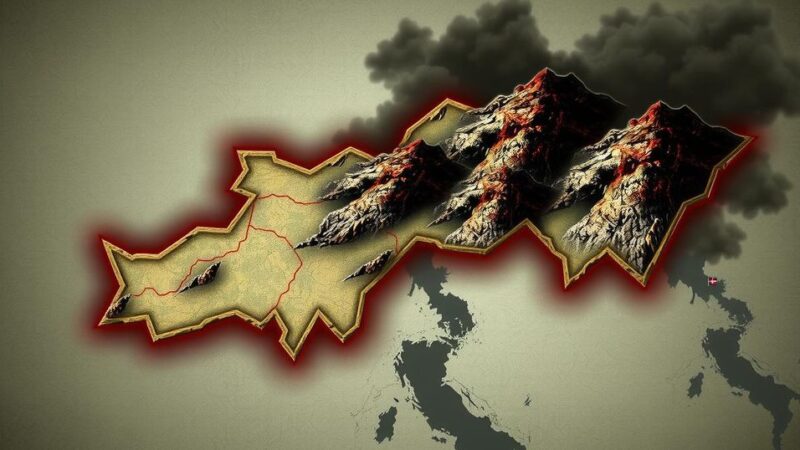Burundi has officially restated its support for Morocco’s claims over Western Sahara during a meeting in Rabat, with its Foreign Minister emphasizing the country’s Autonomy Plan as the only viable solution. This endorsement has been interpreted as a setback for Algeria’s diplomatic maneuvers in the region, marking increased backing from African nations for Morocco’s position.
The government of Burundi has unequivocally reiterated its support for Morocco’s territorial integrity, notably its claims over the Western Sahara territories. This reaffirmation was made during a high-level diplomatic meeting held in Rabat where Burundian Foreign Minister Albert Shingiro met with his Moroccan counterpart, Nasser Bourita. Minister Shingiro characterized Morocco’s Autonomy Plan as the sole viable solution to the ongoing dispute surrounding Western Sahara. Furthermore, he lauded the efforts of the United Nations, emphasizing its role as the sole valid framework for achieving a long-lasting resolution to the conflict. This stance has evoked a strong response from Algerian political analyst Oualid Kebir, who remarked on social media that Burundi’s position constitutes a “strong slap” to Algeria’s diplomatic endeavors and suggested that Algeria’s influence over Burundi has been substantially diminished. This diplomatic endorsement follows Burundi’s establishment of a consulate in Laayoune in early 2020, highlighting the increasing support from African nations for Morocco’s viewpoint. According to recent data, the number of African nations endorsing Morocco’s stance has grown, with Chad recently opening a consulate in Dakhla, elevating the total to 29 countries exhibiting diplomatic ties with Morocco in its southern territories. Furthermore, a report by the Moroccan Center for Parallel Diplomacy and Civilizational Dialogue pointed to Morocco’s reintegration into the African Union (AU) in 2017 as a strategic advantage for enhancing its diplomatic efforts concerning Western Sahara. These developments underscore the complexities Morocco faces within the AU, particularly in relation to the presence of the Polisario Front. The report advocates for Morocco to build a “broad African front” to further its diplomatic objectives, which includes legally contesting the Polisario’s legitimacy within the AU due to its inconsistent recognition as a sovereign entity.
The ongoing conflict surrounding Western Sahara is a protracted territorial dispute primarily involving Morocco and the Polisario Front, a nationalist movement representing the Sahrawi people’s interests. Western Sahara is a region rich in resources, and its status remains contested following Spain’s withdrawal from the territory in 1975. As Morocco claims the area as part of its sovereign territory, the UN has recognized this dispute and promotes negotiations between the involved parties, aiming for a peaceful resolution. The diplomatic landscape has shifted significantly in recent years, with several African nations expressing support for Morocco’s claims, which some analysts interpret as a broader shift in African solidarity against the Polisario Front’s aspirations.
In summation, Burundi’s recent reaffirmation of support for Morocco concerning the territorial integrity of Western Sahara represents a notable development in diplomatic relations within the region. The endorsement comes amidst growing African backing for Morocco’s position, which has significant implications for the ongoing conflict. As Morocco continues to strengthen its diplomatic ties and initiatives within the African Union, the dynamics surrounding the Western Sahara issue may evolve, influenced by regional alliances and the strategies employed by both sides.
Original Source: moroccoworldnews.com





